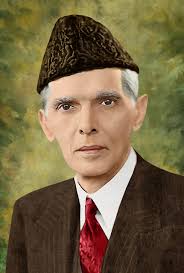14th August Pakistan’s Independence: A Legacy of Resilience and Determination
The 14th of August marks a date of profound significance in the history of South Asia: it is the day Pakistan gained independence from British rule in 1947. This moment marked the birth of a nation and it represents the peak of Muslims struggle. Persistent determination by the people who sought to carve out a distinct identity and homeland for themselves. The legacy of Pakistan’s independence has continued to resonate throughout its history, yielding narratives of resilience and commitment. To understand Pakistan’s journey to independence, it is essential to contextualize the socio-political landscape that influenced the emergence of a separate nation. The Indian subcontinent was under British colonial rule for nearly two centuries. By the early 20th century, political awareness and sentiments for self-determination grew among various communities, including the Muslim population, which felt increasingly marginalized in a Hindu-majority India.
The demand for a separate nation represented by the All-India Muslim League, led by Muhammad Ali Jinnah, gained momentum, particularly after the Lahore Resolution in 1940, which called for independent states for Muslims in the northwestern and eastern zones of India. The struggle for independence was not just a political movement; it was deeply rooted in the cultural and religious identity of its people. The narrative of Pakistan’s beginning is connect to complex social dynamics, wherein millions of Muslims aspired for a political entity that would ensure their rights, safeguard their interests, and foster their religious identity. This ideal prompted widespread mobilization that galvanized support among the populace, culminating in large-scale demonstrations and civil action ahead of independence.
As the deadline for achieving independence approached in 1947, the situation became fraught with tension. The British decision to partition India was spoiled by communal riots, violence, and a massive population exchange that resulted in unprecedented displacement; millions were uprooted from their homes as they crossed new borders created by the Radcliffe Line. Amid this turmoil, Pakistan emerged as a reality, forged in the struggles and sacrifice of its people. August 14, 1947, remains stamped in the collective memory of Pakistanis as the day their dream transformed into reality an assertion of their resilience and determination.
The legacy of Pakistan’s independence is a testament to the challenges frequently faced in its succeeding years. The budding state grappled with difficult obstacles, including the integration of a fragmented society, governance issues, and economic constraints. However, the determination displayed by its leaders and citizens alike became the driving force behind the nation’s efforts to establish itself as a viable, sovereign entity. They tackled these challenges head on, demonstrating an unwavering spirit even within trials. Since its beginning, Pakistan has embarked on various developmental and nationalist agendas that seek to establish a coherent national identity amidst diverse ethnic and cultural divisions. Nationalism as a force in Pakistan swayed between aspirations of religious unity and regional consciousness, further complicating its historical flight. Despite these nuances, the spirit of independence largely persists as a shared franchise among its citizenry, symbolizing hope, determination, and the fight for self-governance.
Pakistan, Independence Day serves as more than just a public holiday; it stands as an annual reminder of the sacrifices made in pursuit of liberty. Celebrations often feature parades, cultural festivities, and reflections on the nation’s journey each marked with an affecting appreciation for the freedoms enjoyed and acknowledged conflicts still inherent within society. Pakistan continues to reinforce its identity, drawing upon the values of introspection, resilience, and optimistic vision for the future. The legacy of Pakistan’s independence is thus multifaceted, stitched together by narratives of struggle, bravery, and unity. It serves as an enduring symbol of what collective determination can achieve and underscores the importance of holding steadfast to national ideals. As Pakistan navigates the complexities of modernity, the resilience that birthed the nation remains the cornerstone of its pursuit for progress, unity, and enduring sovereignty. Such a reflection resonates within the heart of every Pakistani an embodiment of past trials, illuminated by the long-pursued promise of hope and self-determination.
The historical narratives restricting from the independence movement serve as vital components of national identity and highlight the aspirations underpinning the formation of Pakistan. While the past poses challenges in nurturing unity amid diversity, it also presents a powerful chronicle of resilience. As Pakistan navigates contemporary societal and geopolitical issues, the lessons drawn from its intricate history of struggle, bravery, and unity remain relevant and essential for continual growth as a nation. Understanding this legacy is critical for future generations, as it displays the foundational principles on which Pakistan was established and the enduring human spirit in pursuit of a common goal.


